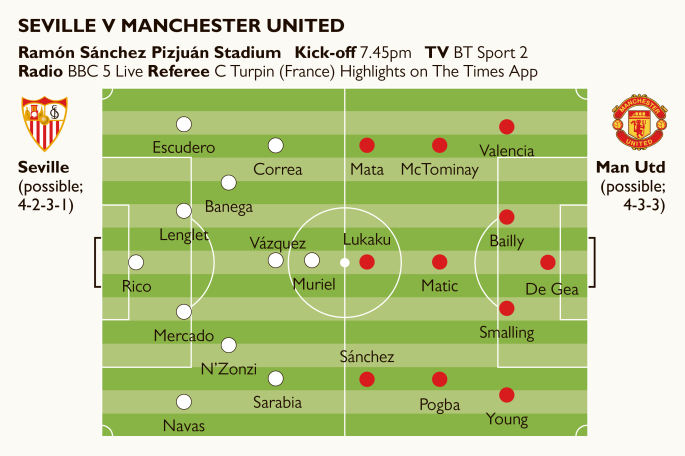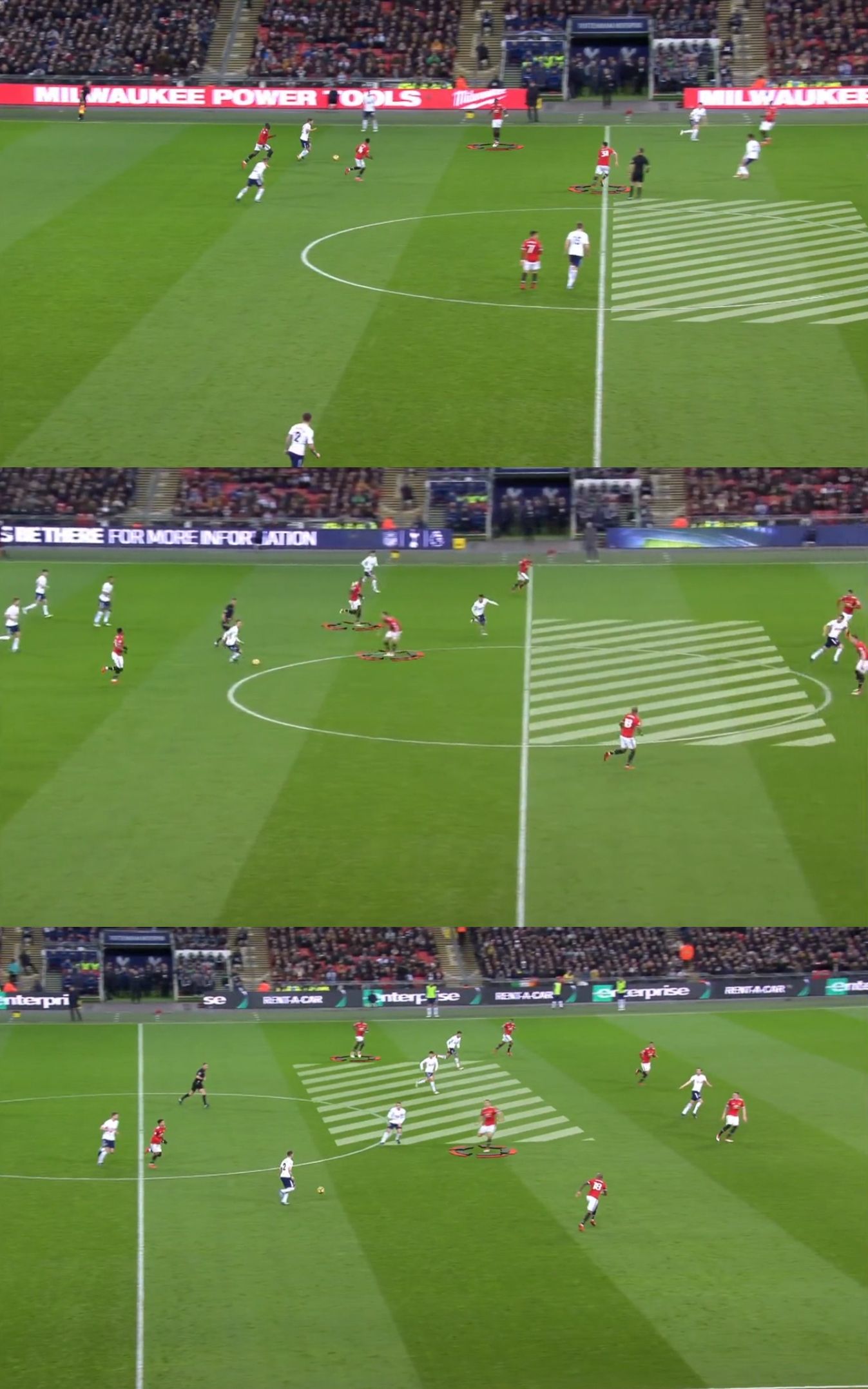
Football

Share
21st February 2018
12:20pm GMT

 If this is the team United start with for the Sevilla match, Pogba and his fans will be pleased. There have been reports in recent weeks that the French midfielder is unhappy playing in a two-man midfield, and he noticeably struggled in the away losses to Spurs and Newcastle.
Pogba reportedly wants United to play a 4-3-3 formation, rather than Mourinho's preferred 4-2-3-1 formation, because it would see two more defensively disciplined midfielders beside him, and allow him to venture forward to try make a difference in the final third.
Pogba played on the left-side of a midfield-three against Everton on New Year's Day, and excelled in a 2-0 win for Mourinho's side, albeit against a team struggling for form. With Ander Herrera, and particularly Matic, patrolling the space in front of United's defence, Pogba had license to get forward and he proved very effective.
The former Juventus midfielder drifted wide, dribbled past defenders, and created chances for his teammates.
If this is the team United start with for the Sevilla match, Pogba and his fans will be pleased. There have been reports in recent weeks that the French midfielder is unhappy playing in a two-man midfield, and he noticeably struggled in the away losses to Spurs and Newcastle.
Pogba reportedly wants United to play a 4-3-3 formation, rather than Mourinho's preferred 4-2-3-1 formation, because it would see two more defensively disciplined midfielders beside him, and allow him to venture forward to try make a difference in the final third.
Pogba played on the left-side of a midfield-three against Everton on New Year's Day, and excelled in a 2-0 win for Mourinho's side, albeit against a team struggling for form. With Ander Herrera, and particularly Matic, patrolling the space in front of United's defence, Pogba had license to get forward and he proved very effective.
The former Juventus midfielder drifted wide, dribbled past defenders, and created chances for his teammates.
 Pogba played the pass for Jesse Lingard's goal and set-up Anthony Martial's goal in the win. It was a very impressive attacking performance from the French midfielder, and highlighted that he plays his best football when beside two players who can cover space in midfield when he wanders forward, and can compensate for his lack of tactical discipline. Yet, Mourinho soon switched back to the 4-2-3-1 formation, and Pogba went from key player against Everton to defensive burden against Spurs.
It could be argued that Mourinho got his tactics wrong by playing two in midfield on the night, but regardless of what formation he selects, he would expect his players to work hard and follow instructions - Pogba did neither. He was constantly out of position when United lost possession, and Spurs passed around him like he was a traffic cone dropped in the middle of the Wembley pitch.
Pogba played the pass for Jesse Lingard's goal and set-up Anthony Martial's goal in the win. It was a very impressive attacking performance from the French midfielder, and highlighted that he plays his best football when beside two players who can cover space in midfield when he wanders forward, and can compensate for his lack of tactical discipline. Yet, Mourinho soon switched back to the 4-2-3-1 formation, and Pogba went from key player against Everton to defensive burden against Spurs.
It could be argued that Mourinho got his tactics wrong by playing two in midfield on the night, but regardless of what formation he selects, he would expect his players to work hard and follow instructions - Pogba did neither. He was constantly out of position when United lost possession, and Spurs passed around him like he was a traffic cone dropped in the middle of the Wembley pitch.
 The midfielder repeatedly got ahead of play, and left large spaces behind him which Matic couldn't cover on his own.
This left United disjointed and gave Tottenham's forwards an easy night. Even a public argument with Mourinho on the touchline couldn't convince Pogba to hold his position in midfield and stop vacating space by wandering forward. He was substituted soon after.
The midfielder repeatedly got ahead of play, and left large spaces behind him which Matic couldn't cover on his own.
This left United disjointed and gave Tottenham's forwards an easy night. Even a public argument with Mourinho on the touchline couldn't convince Pogba to hold his position in midfield and stop vacating space by wandering forward. He was substituted soon after.
 Pogba was equally poor in a two-man midfield away to Newcastle, and Mourinho may not be prepared to use him again in this formation away from home, starting with Wednesday's game in Seville.
Pogba's two poor performances away from home when United used a 4-2-3-1 formation, rather than his impressive display against Everton in a three-man midfield, appears to be key in Mourinho changing to a 4-3-3 formation for the Champions League tie. He could be seeking to cover for his player's flaws, rather than changing because he's looking to grant Pogba the freedom he wants to get forward.
Either way, Pogba could be about to get a chance in his favoured role in midfield, with two more defensively disciplined players beside him. It's up to him to convince Mourinho to stick with this formation, and he'll have to work a lot harder than he has in recent games.
Pogba was equally poor in a two-man midfield away to Newcastle, and Mourinho may not be prepared to use him again in this formation away from home, starting with Wednesday's game in Seville.
Pogba's two poor performances away from home when United used a 4-2-3-1 formation, rather than his impressive display against Everton in a three-man midfield, appears to be key in Mourinho changing to a 4-3-3 formation for the Champions League tie. He could be seeking to cover for his player's flaws, rather than changing because he's looking to grant Pogba the freedom he wants to get forward.
Either way, Pogba could be about to get a chance in his favoured role in midfield, with two more defensively disciplined players beside him. It's up to him to convince Mourinho to stick with this formation, and he'll have to work a lot harder than he has in recent games.Explore more on these topics:

Football
football